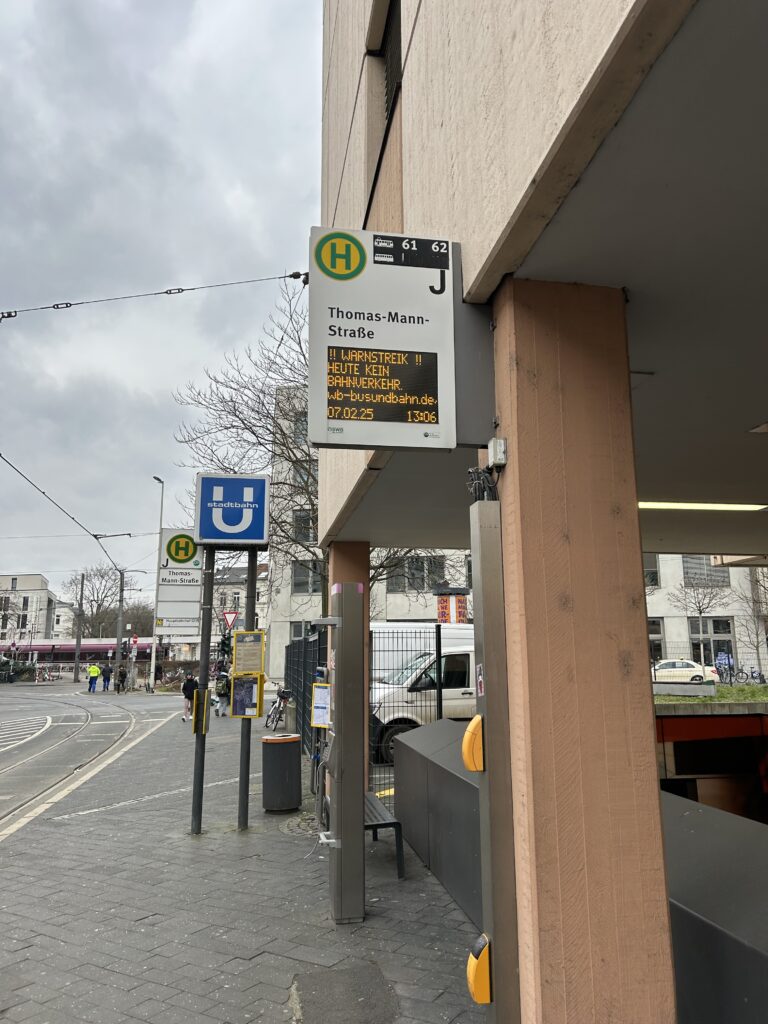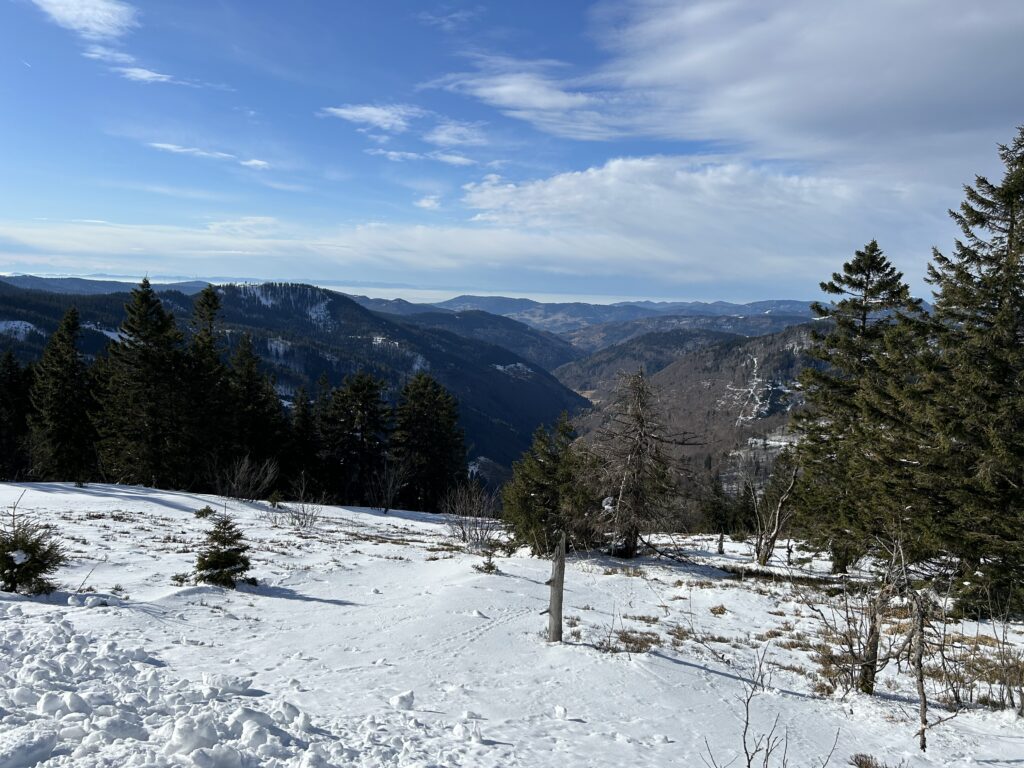Uphill Both Ways
Most days it would take me about 40 minutes to get from my house to school, but on Friday, it took me about two hours. None of the local buses or trams were running on the 7th of February because the workers went on strike. Fortunately, all of our classes were cancelled on Friday, so I had no real need to embark on this journey. However I had made plans to travel to Freiburg and I needed a way to get into town. That is why I decided to walk the 6,5 kilometers to school.
I left the house around 08:00 with everything I needed for the weekend and started navigating towards my route. I ended up walking along my tram route for most of the way, which gave me a real appreciation for the public transit infrastructure. One of the first things I had noticed was how much longer it took to go from station to station. On the tram it is about 2 to 3 minutes between stops and on foot it is closer to 10 minutes. I also noticed that the sidewalks were not concrete, but instead were either stone tiles or cobblestone. The uneven surfaces in the cobblestone could pose issues for older users, but it is certainly not treacherous.
I think the thing that shocked me the most was the bicycle lanes. Cyclists would either have a part of of the sidewalk or part of the road that was always visibly separate from the road and sidewalk. This allowed cyclists to travel safely and efficiently as they only have to share with other cyclists. Bike lanes are often one way as bicycles travel in the direction of traffic and there is a bike lane on both sides of the road. If I were to cycle I could have significantly reduced my commute, but the trams are by far the best suited for my commute.

The regional trams and buses were not running due to a disagreement between the unions and the companies. The union Verdi, or Vereinte Dienstleistungsgewerkschaft, represents many different workers and has yet to reach an agreement with authorities, hence the strike. They want employees to be payed at least 8% more, at least 350 more Euro per month, and 3 more days off. The companies believe that these demands are too much, but Verdi believes that this is reasonable due to the high workload. Many other companies went on strike in solidarity as well, as the working class is the most effective when they work together.
The problems did not end in Bonn, as there were many delays and cancellations on regional trains as well. My friends and I ended up waiting for over an hour to get on a train to get to Koeln. The train was packed like a can of sardines with some people waiting for over two hours to board the train. Once we got off the train, we had problems finding a good high-speed option out of the city, as they were affected by some delays as well. After we got on the train, the rest of our plans worked out and we spend a wonderful weekend in the Black forest.
I really enjoyed this trip, even if I had to metaphorically hike uphill both ways to make this trip happen.

-Owen B
Sources:
Ahrens, L. F. C. H. T. S. F. W. L., Ms-Admin_HF, & Wittke, S. (2025, February 9). Kitas, Müllabfuhr, ÖPNV: Eine Woche voller Streiks. Westdeutscher Rundfunk Köln. https://www1.wdr.de/nachrichten/warnstreiks-verdi-nrw-wo-100.html
Vereinte Dienstleistungsgewerkschaft. (n.d.). ver.di. https://www.verdi.de/

Back when I was a kid, I had to walk uphill both ways to get to school!!. You guys are so lucky to have public transit.
-Godspeed
Winston Smith
Yeah, public transit is such a gamechanger. It wont be fun going back to the states, especially without the public transit.
-Godspeed
Owen